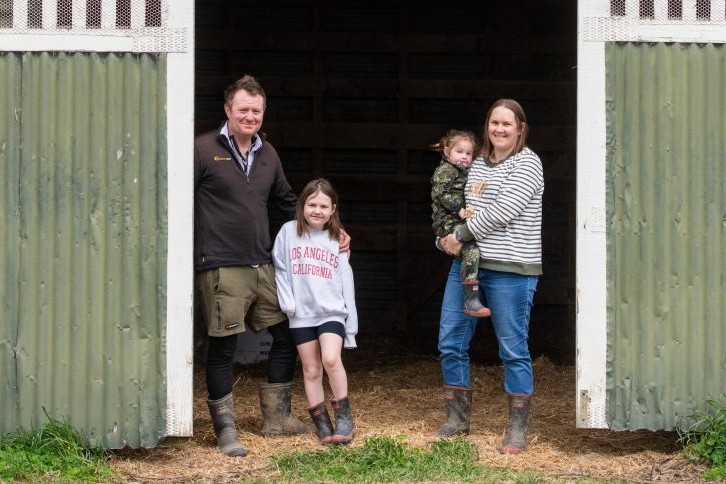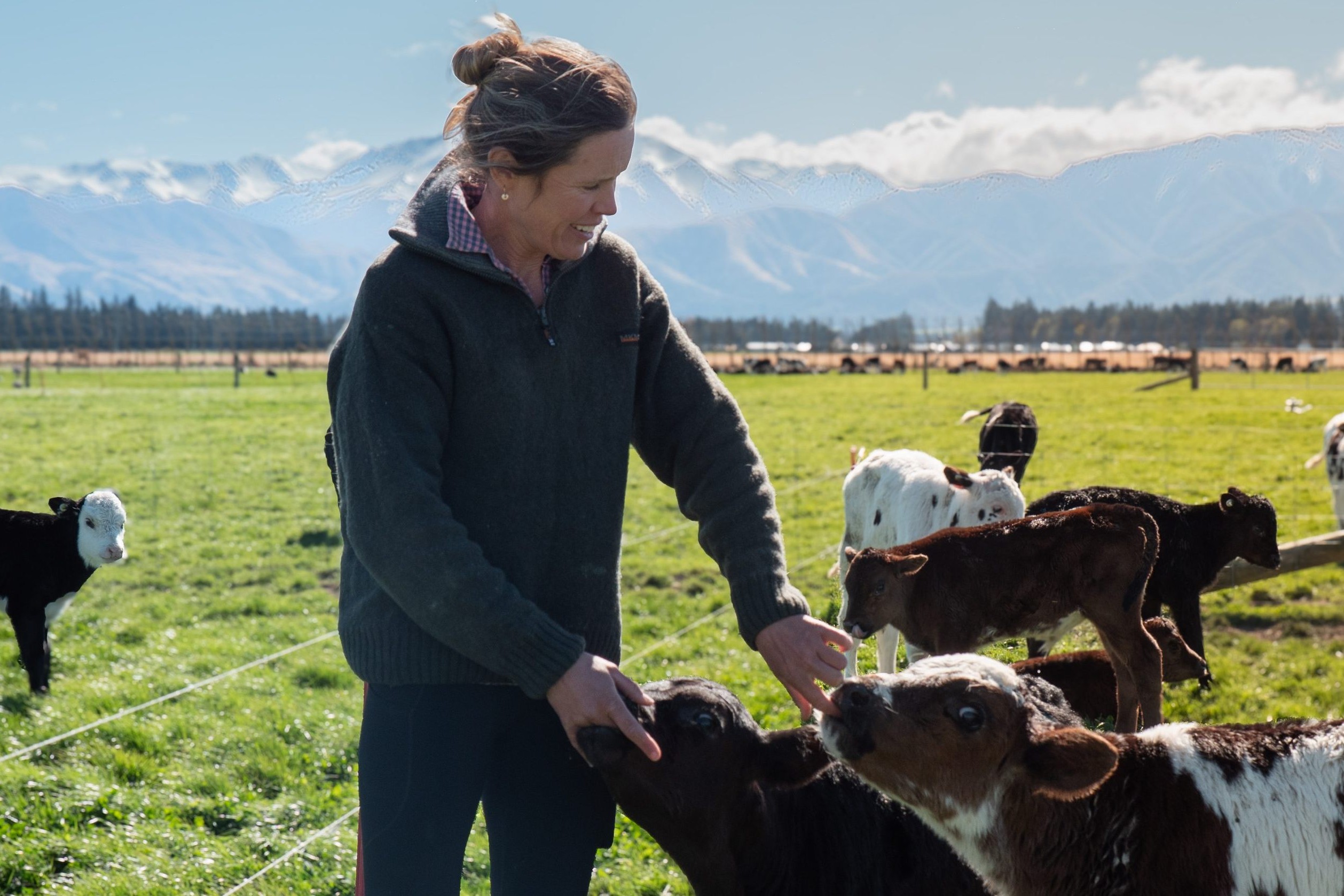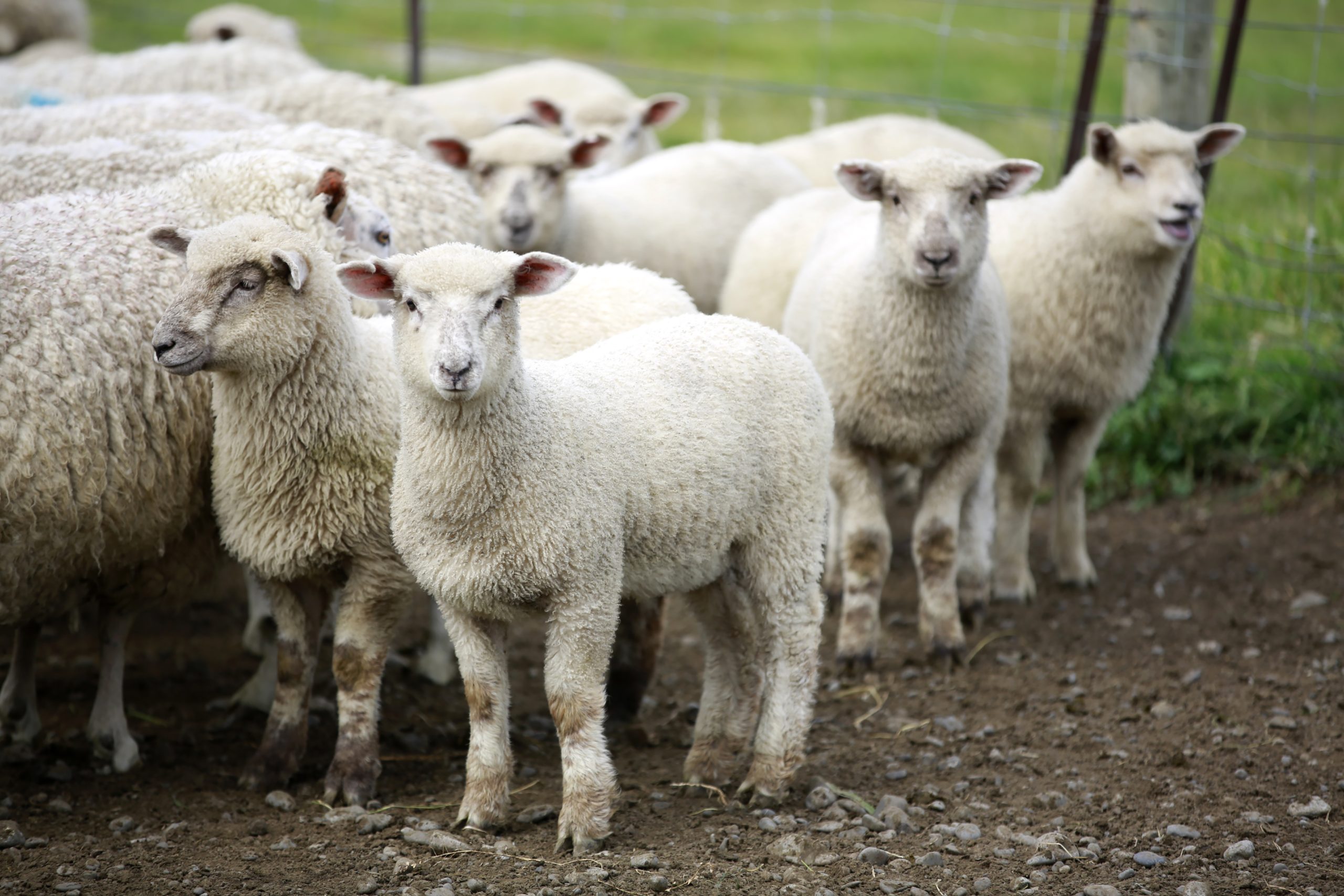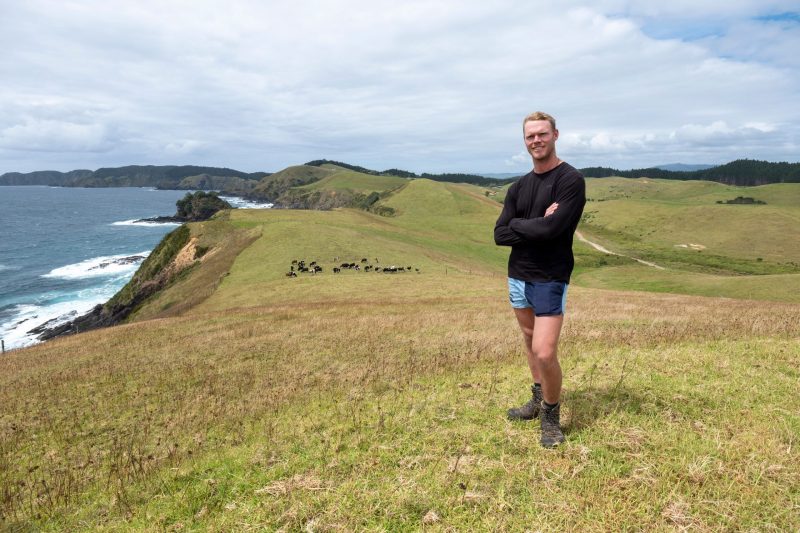A durable farming partnership
An equity partnership that allowed a father and son to farm has finished, but the winning Wairarapa pair are still farming. By Terry Brosnahan. Photos by Mark Coote.
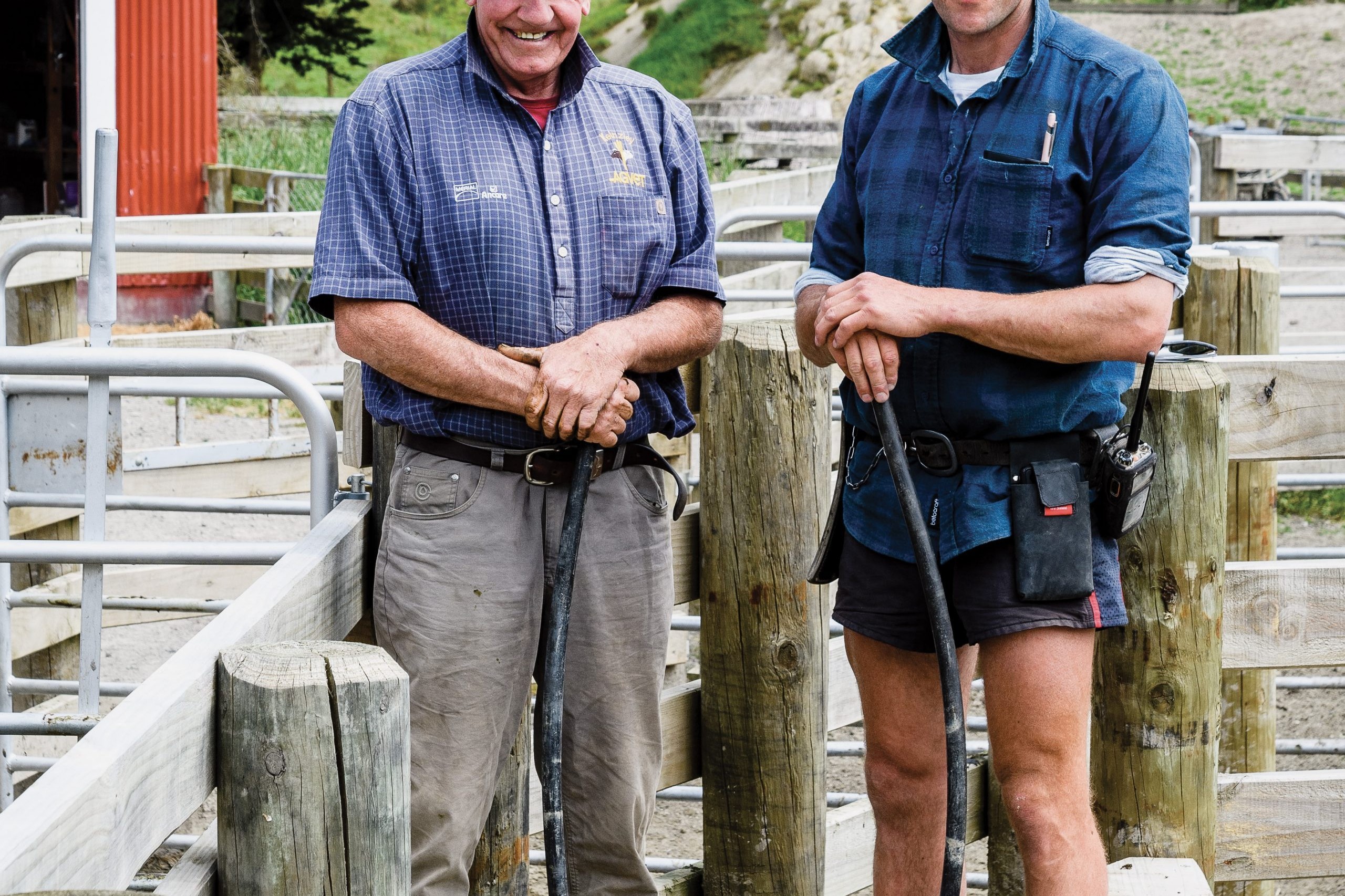
An equity partnership that allowed a father and son to farm has finished, but the winning Wairarapa pair are still farming. By Terry Brosnahan. Photos by Mark Coote.
Jim Varty and his son Brendan appeared in Country-Wide in 2011 and 2016. By 2016 they had made a 5.9% return on capital over four years, three times the national average for sheep and beef farms. In that time, the pair paid off $330,000 in principal debt and bought $63,000 worth of ewes in two years. They won the Wairarapa sheep and beef farm business of the year in 2016.
The Vartys were on a salary and had the dividend from their 42% shareholding.
Their Concordia Farms equity partnership ended in July 2020 when the farm at Alfredton, Wai-iti, was sold. Jim says unfortunately a member of the Concordia partnership “wasn’t on the same page” so they tried to buy him out, but they couldn’t make it work. They put it on the market but it didn’t sell. They carried on for another two years until a South Island couple, dairy farmers who wanted to go sheep farming, made an offer. The other shareholders accepted and Brendan stayed on to help the new owners for eight months.
The Vartys formed another partnership in late December 2020, bought a 725ha farm and took possession in March 2021.
The new farm, Taki Taki, is 27km northeast of Masterton and was owned by Derek Neal and featured in Country-Wide November 2016.
Brendan says they are running the same system on Taki Taki as they did on Wai-iti, breeding ewes, breeding cows and trading cattle and feeding stock well to get good weaning weights so they have options for selling store or finishing.
The Varty’s total farm income on Taki Taki was $1450/ha for their first full year, ending June 2022. The economic farm surplus (EFS) was $400/ha, distorted by a one-off cost for removing the old cattle yards and building new ones.
Without the cost of yards the EFS was $500/ha.
Brendan says they didn’t get the 32–34kg lamb weaning weight like they did on Wai-iti, but that is put down to the season, not the farm. Media reports and locals say weaning weights were back three kilograms on average.
“We’re expecting better weights [this year] because the ewes are in such better condition, though it’s another tough spring – it hasn’t sprung.”
After two tough springs in a row, dairy farming production in the Wairarapa has been reported to be back 20%, the worst since 1994.
The lambing was 147% in the Varty’s first year. This year it was 142% across the whole flock. The recorded ewes hit 155%.
Back in 2011 Jim told Country-Wide that making a high-performing farm is what gets him out of bed in the morning.
He still enjoys the challenge, though he gets out of bed perhaps a bit more slowly. Jim’s now 68 and says he is the boy and Brendan (35) is the boss. They’ve been a good team over the years and each has a 21.5% share in the new partnership. In Concordia, Jim had 39%, Brendan, 3%. Derek Daniell and Andy Falloon each have a 28.5% share.
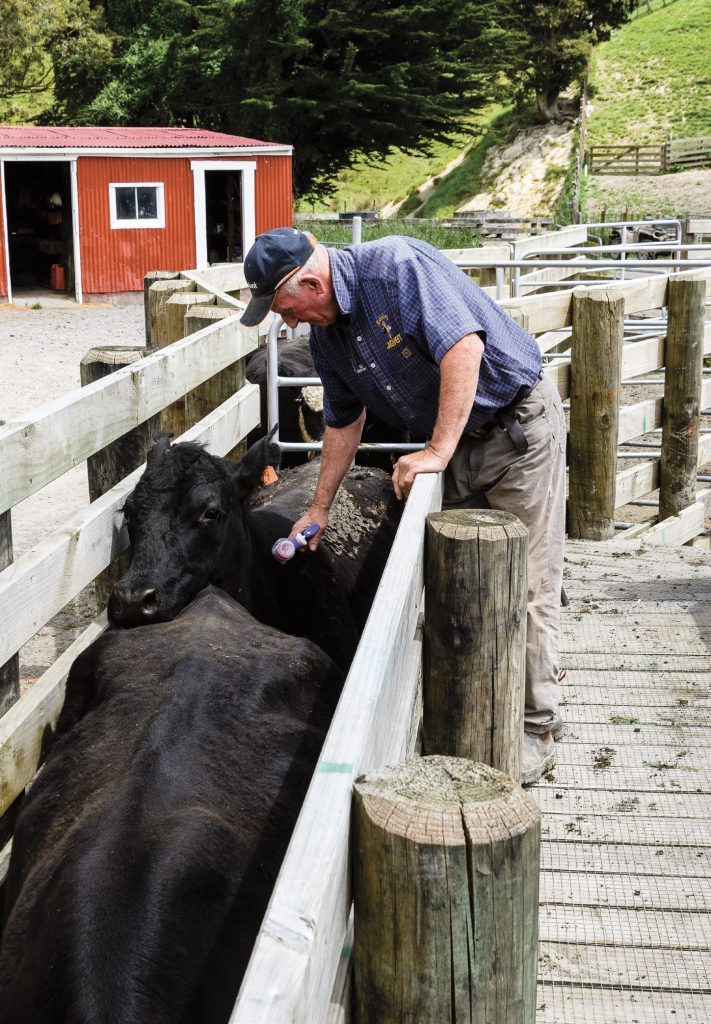
Beginning of partnership
Jim has known Derek Daniell since 1987 when, as a shepherd working for another farm, he bought some rams from him. Derek was part of Concordia equity partnership too. The first partnership was needed because Jim didn’t have the capital to buy a farm on his own. At the time, National Bank rural banker George Murdoch put Jim on to the equity partnership option and he never looked back.
Wai-iti, 683ha (620ha effective) was bought in 2005 and the Vartys ran a Wairere stud satellite flock. Wairere-supplied rams were put over the recorded and commercial ewes.
When Concordia ended, Derek was happy to take a share in a new partnership if the right farm came up. Jim says they couldn’t ask for better partners; they have similar goals and understand farming.
“A biggie with an equity partnership is getting the right mix of people.”
The four shareholders are directors, and there is an independent board member Sean Stafford from MCI & Associates who set the equity partnership up.
When they sold Wai-iti, they needed a home for the satellite flock. Derek Daniell gave them 12 months to find a new home and the new owners agreed to have them for about seven months.
Jim and his wife Ellen also had to find a new home, so Derek offered them a house for nine months. The break was a good opportunity for Jim to get a foot operated on, which laid him up for three months. He did some casual work and worked on the equity partnership when Taki Taki came on the market.
They were without a farm for six months and it looked like they would run out of time before it all came together.
“We managed to stitch the deal together in the nick of time,” Jim says.
The new owners of Wai-iti bought most of the ewes off Derek Neal. So trucks were taking ewes from Wai-iti to Taki Taki and vice-versa.

Focused on feeding
The Varty’s ran a simple system on Wai-iti with a focus on feeding.
“If you look after them they will look after you,” Jim says.
Derek Neal had run a bull beef and sheep operation over Taki Taki and had two finishing farms. The sheep focus was on rearing as many lambs as possible on Taki Taki and finishing them on the farms. Weaning weights weren’t as important as they were to the Vartys. They also wanted as many lambs as possible but needed good weaning weights to get them away early if need be.
They are carrying on at Taki Taki what they did at Wai-iti. After Wairere selects its ram lambs, the singles and B flock lambs are killed off. If the season allowed, more would be finished, otherwise they were sold store. Surplus ewe lambs are sold to other farms for breeding.
On Wai-iti they went out of cows for about three years. The thinking was that trading cattle would give them more options for buying or selling stock and be lighter on the soils in winter. They started to notice the sheep flock’s performance changed, the weaning weights started dropping.
Brendan says they put it down to the lack of cows so back they came and weaning weights rose again.
“It shows the hidden value of beef cows on hill country farms.”
The Vartys are big fans of Massey’s University’s Paul Kenyon and lambing hoggets but they never hit their goal of 100% lambing. Jim says they had more joy with weaning weights.
“We’ve had some bloody great results.”
He says it is a battle to get a fantastic hogget lambing result on the Wairarapa hills and he is not alone. Other farmers he talked to have battled too, but he says the hoggets still do alright.
“The key to mating hoggets is to have them grown out well by the time they come to lamb.”
Jim says they don’t give them any more grief at lambing time than the ewes.
For the first time in 12 years they drenched a mob of ewes on Taki Taki.
“We took over March 17, the ram went out on April 5 and we gave everything a flush out,” Brendan says.
Farm-wise there is not a lot of difference between the two farms. A similar climate and both have good fertility. Paddock sizes on average are about the same. Taki Taki’s highest point is more than 80 metres higher than Wai-iti’s. “Some of the hills put the wind up you,” Jim says.
Like Wai-iti it can grow grass and is a “grunty” farm.
By the end of June the stocking rate drops from 9.5–10/ha to 9su/ha, so hopefully the ewes are set-stocked on to good covers and are milking well when they lamb.
They are running 2200 commercial ewes, 1200 recorded, 1080 hoggets, 100 breeding cows and wintered 160 trade cattle.
In the 15 years the Vartys ran Wai-iti it was always an all-grass operation. Some spraying out of paddocks took place and sowing back into grass.
Jim says the partnership never held back on spending on capital development because everyone wanted a farm that performed and to be proud of. The Vartys couldn’t think of what more they could’ve done on Wai-iti, except perhaps some more pasture renewal.
One piece of advice from Brendan is to take the opportunities when they come up, like buying more land next door.
Equity partnership advice
Jim says there is a lot of work that goes into setting up an equity partnership. The most important thing is to find the right mix of people. Like-minded people with a good understanding of the business and who have the same vision and objectives.
“They all have to be on the same page.”
Brendan advises getting the people and partnership before looking for a farm and also says there needs to be a good solid shareholder agreement to protect all parties.
“So it doesn’t leave anyone exposed.”
Jim says ideally a partner needs to be a team player. Partners go into it together with the aim to benefit everyone.
“It’s not a case of what’s in it for me, but a case of what’s in it for the whole group.”
An equity partner used to handle the books with Wai-iti, but now it is Brendan, and Andy Falloon’s partner Gwyn Jones.
Taki Taki is half the distance to Masterton than Wai-iti, which suits Brendon and his family. Brendon is married to Aleksei and they have two children, Leala, 4 (nearly 5), and Levi, 7. Jim says Levi is a farmer in the making. He is always out on the farm and telling his father and grandfather what to do and how to do it.
Aleksei is a registered nurse and works in town, handier for their children’s sport and Brendan’s gym. The former NZ muay thai kickboxing champion has given up the competitive side but he is still part of a gym and keeping fit.
Jim wishes he had kept up his fitness after doing karate until about 20 years ago. He tried to keep fit on the farm but got slack. So about three months ago he signed up to a Crossfit gym and goes three times a week.
This will be good for Jim because he doesn’t have any plans to retire anytime soon. Just keep doing what he and Brendan do best, working together.
- Links to previous stories on Wai-iti and Taki Taki:
- November 2013: bit.ly/3UMCWoi
- June 2016: bit.ly/3GfROr6
- November 2016: bit.ly/3Ew7Z2g

